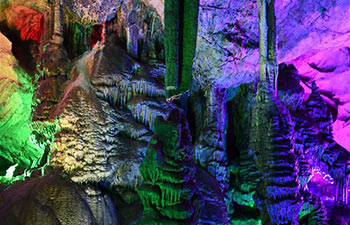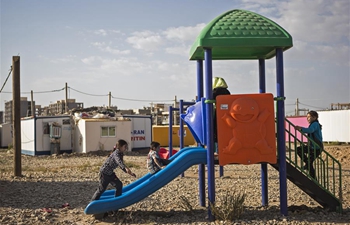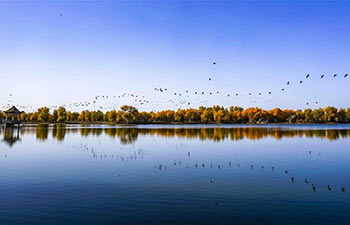NAIROBI, Oct. 30 (Xinhua) -- Kenya Wildlife Service (KWS) on Tuesday launched a national census to determine the number of lions and hyenas in its national parks and conservancies.
Charles Musyoki, acting KWS director general, said the study has been necessitated due to rapid changes in conservation landscapes that include infrastructure development, land-use changes and rapid human population change.
"We determine to fast track the survey and ensure that the information generated is used in formulating the new lion and spotted hyena recovery and action plan," Musyoki said during a conference on carnivore conservation in a changing landscape.
Musyoki noted that the status and numbers of carnivores in most parts of Kenya is unknown, mostly due to the absence of long term research projects.
"As human-carnivore interactions increase, so do human-carnivore conflicts, resulting in reductions in carnivore numbers through killing - poisoning, trapping and shooting, and lack of support for carnivore's conservation among local communities," he added.
He said that the national lion survey is also expected to give density estimates for other small carnivores.
The KWS official revealed that the survey that is being conducted in collaboration with conservation partners is done using Bayesian spatially explicit capture-recapture.
"This is a new method that we have adopted for use to survey lions and other carnivores in Kenya after piloting it in Lake Nakuru National Park and Maasai Mara Ecosystem," he Musyoki said.
He observed that KWS will continue to work with partners and communities to secure more space for carnivores under the changing landscape.
Experts say conflict caused by large carnivores has raised perception of large numbers of large carnivores in the ecosystem.
According to the wildlife body, there are about 2,000 lions, between 2,000-4,000 spotted hyenas, 1,160 cheetahs and 845 wild dogs.
Musyoki also said that KWS, communities and conservation partners are in the process of reviewing the lion and spotted hyena recovery and action plan.
"The new recovery and action plan will guide the conservation and management of the lions and spotted hyenas in the next five years," he added.
He said that KWS has put in place various mitigation measures to minimize the conflicts from establishment of predator proof fences, development of education and awareness programs and working with partners to implement consolation programs.
Musyoki noted that carnivores play a key role of regulating population of ungulates in the ecosystems.
The two-day conference is being attended by carnivore scientists, community members and conservation partners to share research findings that will help Kenya achieve her vision to secure viable and ecologically functional carnivore populations.













